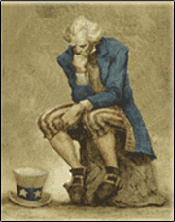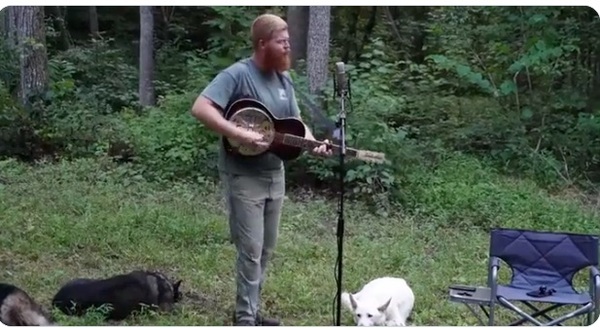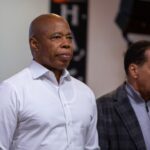
(function(d, s, id) { var js, fjs = d.getElementsByTagName(s)[0]; if (d.getElementById(id)) return; js = d.createElement(s); js.id = id; js.src = “https://connect.facebook.net/en_US/sdk.js#xfbml=1&version=v3.0”; fjs.parentNode.insertBefore(js, fjs); }(document, ‘script’, ‘facebook-jssdk’)); –>
–>
August 14, 2023
‘); googletag.cmd.push(function () { googletag.display(‘div-gpt-ad-1609268089992-0’); }); document.write(”); googletag.cmd.push(function() { googletag.pubads().addEventListener(‘slotRenderEnded’, function(event) { if (event.slot.getSlotElementId() == “div-hre-Americanthinker—New-3028”) { googletag.display(“div-hre-Americanthinker—New-3028”); } }); }); }
A truly beautiful thing happened in the past week, as I hope you’ve already heard. Oliver Anthony, a singer-songwriter from Farmville, Virginia, captured lighting in a bottle with at recording of his song, “Rich Men North of Richmond,” which quickly proceeded to become the most popular and talked about song in the country.
There have been many anti-establishment songs from untypical creators in recent years that have made waves, like Loza Alexander’s “Let’s Go Brandon,” or Forgiato Blow’s “Boycott Target.” A recent example from a more traditional source, perhaps, is Jason Aldean’s “Try That in a Small Town.”
This is not that. Anthony’s song is something else entirely. First and foremost, this is because he’s clearly and excellent musician and it’s just an excellent song, while those others examples are little more than gimmicks. But another reason why this song may have resonated with so many is that the song exudes an authentic human experience, and it begins with the song’s title.

‘); googletag.cmd.push(function () { googletag.display(‘div-gpt-ad-1609270365559-0’); }); document.write(”); googletag.cmd.push(function() { googletag.pubads().addEventListener(‘slotRenderEnded’, function(event) { if (event.slot.getSlotElementId() == “div-hre-Americanthinker—New-3035”) { googletag.display(“div-hre-Americanthinker—New-3035”); } }); }); }
If you were to ask a Nashville advertising exec, or the AI that they’re undoubtedly consulting by now on such questions, they would have both told you that the song could have just as easily been titled, “Dirty Politicians in D.C.” or some such. In fact, that title would have likely made the title applicable for more listeners across the country, the marketing whiz and tech-bots might say. There are millions of people in California, for example, who may have no idea that a place called Richmond, Virginia exists, much less its geography or what might lie north of it.
There’s something explicitly human in the choice of Anthony’s title, which is something that soulless advertising execs and AI can’t replicate. Specifically, the writer is speaking from personal frame of reference, as we humans so often do. Richmond, Virginia, lies just over 100 miles south of the Washington, D.C. About 60 miles west-by-southwest of Richmond is Farmville, Virginia. Richmond is the biggest city near Farmville in relation to D.C., and it’s therefore his unique point of reference to those men he references.
It’s the first of many examples of Oliver’s songwriting nuance, trusting that his audience is smart enough to not require ham-handed efforts to throw red meat to anti-establishment types. “I wish politicians would look out for miners,” he writes, “and not just minors on an island somewhere.” It’s an unsubtle but clever reference to both politicians’ disdain for the working class and Jeffrery Epstein’s pedophile island.
But what stands out most about this song is that, while the singer’s passion is unmistakable, it seems to be less an expression of anger than exasperation. “It’s a damn shame,” he sings, “what the world’s gotten to. For people like me and people like you. Wish I could just wake up and it not be true, but it is. Oh, it is. Living in the new world with an old soul…”
He knows his audience. Because he, like millions of working-class Americans, young and old, is the Forgotten Man in America today.
Before that phrase “Forgotten Man” was corrupted by Franklin D. Roosevelt to mean “the poor man” who desired and needed all the government welfare programs he was pitching during the New Deal, the phrase was first coined in an essay by Yale philosopher William Graham Sumner, who observes that the political schemes of social reformers in government “may always be reduced to this type – that A and B decide what C shall do for D, the “poor man.” I call C the Forgotten Man, because I have never seen that any notice was taken of him in any of the discussions.”
‘); googletag.cmd.push(function () { googletag.display(‘div-gpt-ad-1609268078422-0’); }); document.write(”); googletag.cmd.push(function() { googletag.pubads().addEventListener(‘slotRenderEnded’, function(event) { if (event.slot.getSlotElementId() == “div-hre-Americanthinker—New-3027”) { googletag.display(“div-hre-Americanthinker—New-3027”); } }); }); } if (publir_show_ads) { document.write(“
Sumner goes on:
He has to get out of the soil enough to pay all his taxes, and that means the cost of all the jobs and the fund for all the plunder. The Forgotten Man is delving away in patient industry, supporting his family, paying his taxes, casting his vote, supporting the church and the school, reading his newspaper, and cheering for the politician of his admiration, but he is the only one for whom there is no provision in the great scramble and the big divide.
Such is the Forgotten Man. He works, he votes, generally he prays – but he always pays – yes, above all, he pays.
Americans by the millions relate to Oliver Anthony because his passionately sung words resonate with them, and that is because they, like him, are the true Forgotten Men in the American social equation today, and that’s apparent in the lyrics of Anthony’s song.
These Forgotten Men work all day, and often “overtime hours for bullsh*t pay,” only to “drag back home and drown [their] troubles away.” And all because these “rich men north of Richmond” just “wanna have total control” over what you think and do. They don’t think you see that, but you “know that you do.”
Of course, “your dollar ain’t sh*t” and it’s “taxed to no end,” and yet while working-class Americans are struggling to put food on the table, the obese are “milking welfare.” It’s obvious that “if you’re 5-foot-3, and you’re 300 pounds, taxes ought not to pay for your bags of fudge rounds,” but no one ever asked those working-class Americans if the taxes extracted from them should be used in that way.
Young men are indeed “putting themselves six-feet in the ground” at alarming rates, because “all this damn country does is keep on kicking them down.”
Outside of the D.C. bubble and its supporting class of effete coastal and intellectual elites, Americans of all stripes know that all of that is true.
Oliver Anthony’s song is the most important song in recent American history, and it is perhaps made all the more powerful by the story behind it. Jason Howerton relates on X that it was a “story that moved the deepest parts of [his] soul.”
In the past, Oliver was struggling with mental health & coping with alcohol. In depths of despair, just about a month ago, Oliver got down to his knees & broke down in tears.
Though he wasn’t a religious man, that night he promised God to get sober if he helped him follow his dream.
Oliver was about 30 days sober when someone reached out & asked him to come record a song for his YouTube channel.
That song was “Rich Men North of Richmond.”
Oliver Anthony has responded to the overwhelming success of the song admirably, clearly gushing with surprise and happiness. Reminding his audience about an upcoming show at a farmer’s market, he tells his audience that he:
…will stay until 2:30 AM if I have to. But I promise, if you show up, if you’re willing to come and listen to me, I am willing to stay and listen to you. I wanna shake your hand, I wanna hear what you have to say, I wanna hear your story… This is not about me.
This young man, and not those rich men north of Richmond, truly exemplifies what America should be, and I couldn’t be happier about his success in touching so many people’s lives. He can be followed on X at @aintgottadollar.
Oh, and by the way, he apparently had a terrific turnout at his show at the farmer’s market, and as of this writing, it appears that he’s living up to his promise to fans.
Photo credit: X (formerlyTwitter) video screengrab
<!–
–>
<!– if(page_width_onload <= 479) { document.write("
“); googletag.cmd.push(function() { googletag.display(‘div-gpt-ad-1345489840937-4’); }); } –> If you experience technical problems, please write to [email protected]
FOLLOW US ON
<!–
–>
<!– _qoptions={ qacct:”p-9bKF-NgTuSFM6″ }; ![]() –> <!—-> <!– var addthis_share = { email_template: “new_template” } –>
–> <!—-> <!– var addthis_share = { email_template: “new_template” } –>




